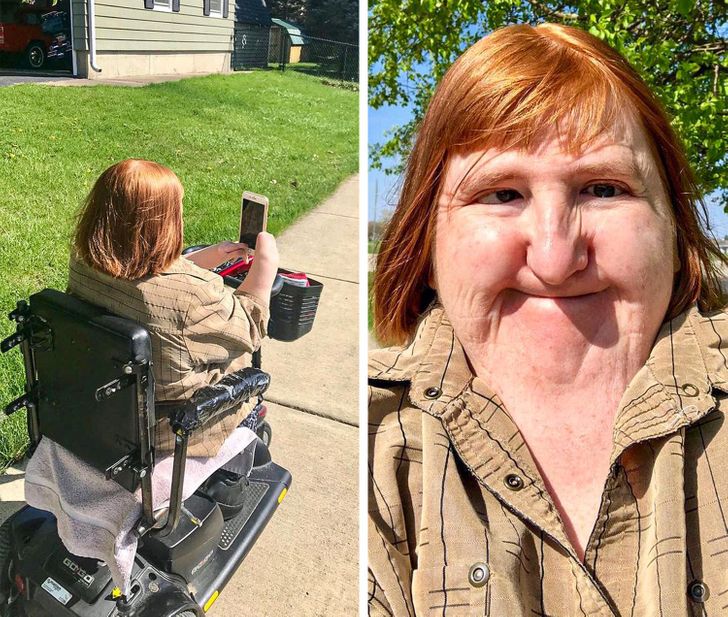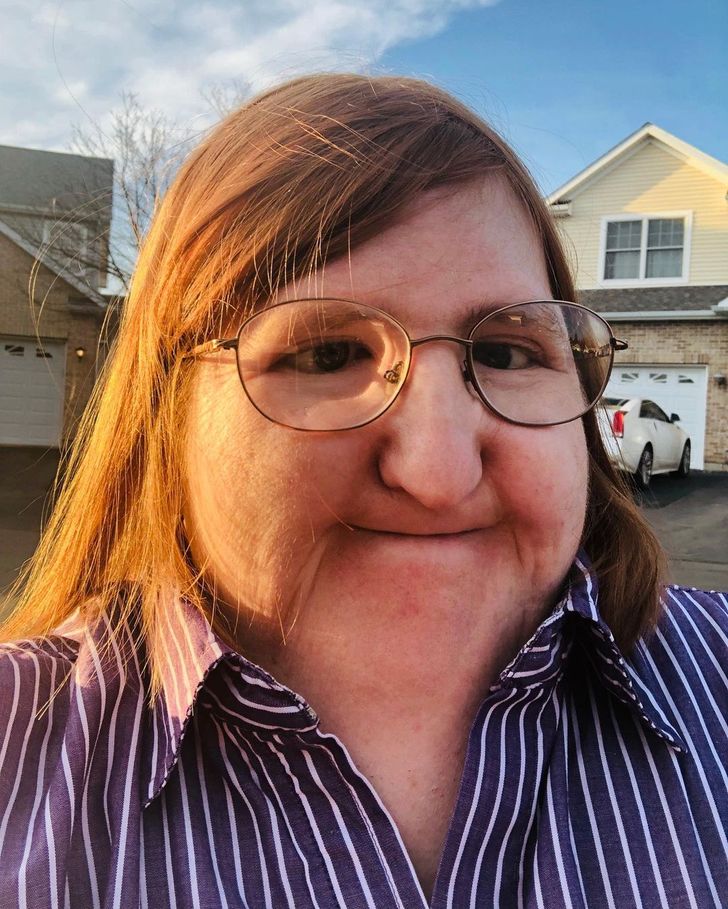Melissa Blake, a writer and disability advocate, made headlines for her powerful response to online bullying. After facing derogatory remarks about her appearance, Melissa took a bold stand by posting a selfie every day for an entire year—turning a moment of cruelty into a campaign for self-acceptance, disability visibility, and social media kindness.
Her story has since inspired tens of thousands and continues to serve as a reminder of the importance of confidence, digital inclusion, and standing up to discrimination.
The Background: Targeted Online Harassment
In 2019, Melissa Blake wrote an op-ed for CNN on political and disability issues. Shortly after the article went live, she became the target of online abuse. A YouTuber posted her photo, which led to a flood of comments mocking her appearance.
Melissa, who lives with Freeman-Sheldon syndrome—a rare genetic condition that affects the development of facial and skeletal features—was subject to highly inappropriate and hurtful remarks. Despite the negativity, she decided not to retreat.
Instead, she responded with strength and wit.
“During the last round of trollgate, people said I should be banned from posting photos of myself because I’m too ugly,” Melissa tweeted. “So I’d just like to commemorate the occasion with these 3 selfies.”
That tweet, published on September 7, 2019, quickly went viral. Supportive messages poured in, with social media users praising her confidence and resilience.

Turning Hate into Advocacy: A Year of Selfies
Rather than let the online abuse silence her, Melissa transformed the experience into a campaign for disability representation and body positivity. She began posting one selfie each day for a year on social media, particularly Instagram and Twitter, where she used her platform to challenge stereotypes about beauty and disability.
Her follower count on Instagram grew significantly—from about 7,500 to over 100,000. The project became a celebration of self-expression and an educational journey that addressed misconceptions about people with disabilities.
In an interview with Refinery29, Melissa explained the deeper purpose of her initiative:
“There was one thing they all had in common: Each selfie truly reflected my personality and who I was. Each was a celebration, and each carried a message.”
She continued:
“It’s a way of taking back my power and painting a more accurate picture of disability. Because the one we have now? It’s more 1950 than 2020—full of misconceptions that often only show disabled people as drains on society. On the contrary, we lead full lives and I’m so proud that I was able to show that for an entire year.”
The Broader Message: Fighting Discrimination and Promoting Inclusion
Melissa’s response to bullying goes far beyond personal empowerment. It contributes to larger conversations around:
- Body acceptance
- Disability rights
- Mental health and digital well-being
- Online civility
Through consistent, courageous content, she has helped shift the narrative around what people with disabilities can and do achieve. Her story is now frequently cited as an example of how to respond to negativity with dignity and purpose.
Organizations such as Disability Rights UK and Scope continue to highlight the importance of inclusive representation in media. Melissa’s work aligns with their missions and brings visibility to individuals who are often excluded from public narratives.

Melissa Blake Today: Writer, Advocate, Role Model
Now in her early 40s, Melissa continues to write and speak about topics including disability justice, media representation, and mental health. Her bylines have appeared in CNN, The New York Times, The Washington Post, and Glamour, where she discusses both her personal experiences and larger societal issues.
She also runs a blog, So About What I Said, which covers everything from pop culture to chronic illness. The blog has become a safe space for readers navigating their own challenges.
Her social media presence—particularly on Twitter (@melissablake)—remains active, positive, and influential.

Key Lessons from Melissa Blake’s Story
Melissa Blake’s selfie-a-day project is more than a personal victory—it’s a social message. It proves that:
- Appearance-based bullying is never acceptable.
- People with disabilities deserve equal representation online and in the media.
- Confidence and kindness are powerful tools for change.
- Everyone’s voice matters, especially when used for good.
Her story also serves as a call to action for platforms and users alike to promote safer, more inclusive online spaces.

Conclusion
Melissa Blake’s journey from targeted abuse to global recognition is a powerful reminder of what can be achieved through authenticity and resilience. By turning a hurtful situation into a movement for awareness and change, she has empowered not only herself but also thousands of others.
In today’s digital world, where appearance and popularity often take center stage, Melissa reminds us that real beauty is rooted in courage, honesty, and the strength to be oneself.
Reputable Sources Cited
- CNN Opinion: Melissa Blake’s original 2019 article
- BBC News: “Melissa Blake responds to online abuse”
- Refinery29: “Melissa Blake On Defying Trolls With Selfies”
- Today.com: “Melissa Blake takes a stand against body-shaming trolls”
- The Guardian: Disability Representation in Media
- Melissa Blake’s Twitter: @melissablake

